Project:
Decent Crowd
Role:
Ux Designer
Duration:
2 months
Project Vision
DecentCrowd aims to create a transparent, secure, and user-friendly crowdfunding platform that empowers communities. By leveraging blockchain technology, we prioritize privacy, real-time tracking, and ease of use to help individuals support causes they care about with confidence and clarity.
Challenges
- User Education
- Trust and Security
- User Experience Optimization
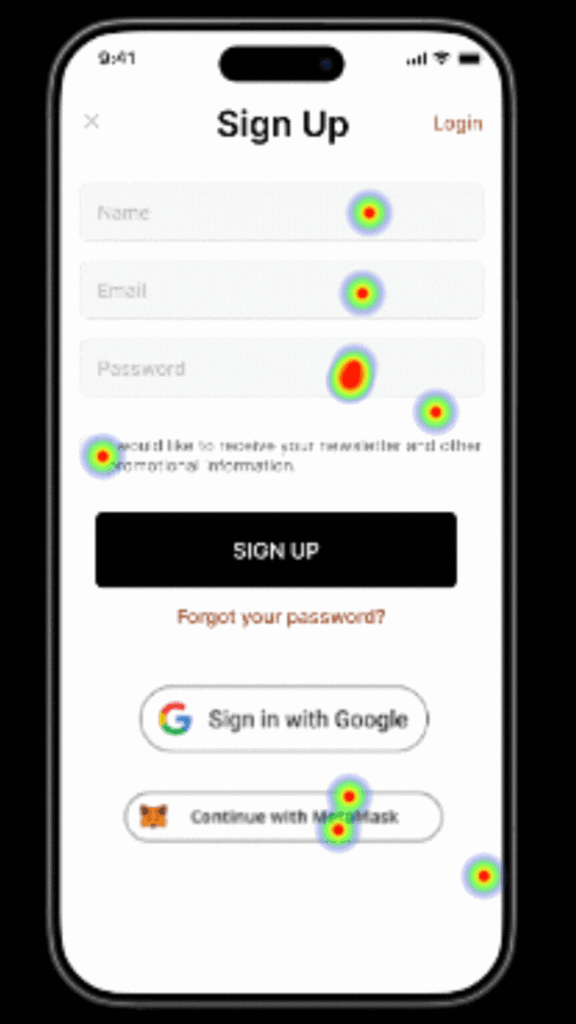
Kickoff
Empowering communities through transparent, decentralized crowdfunding.
Inspired by KickStarter’s model for community-driven funding.
Decentralized platform ensuring transparency and security.
Available on a desktop platform, optimized for laptops and tablets.
DAO integration, enabling project backers to participate in governance.
Includes a mobile version accessible via web app and mobile app stores.
Supports anonymous contributions, fostering privacy for backers.
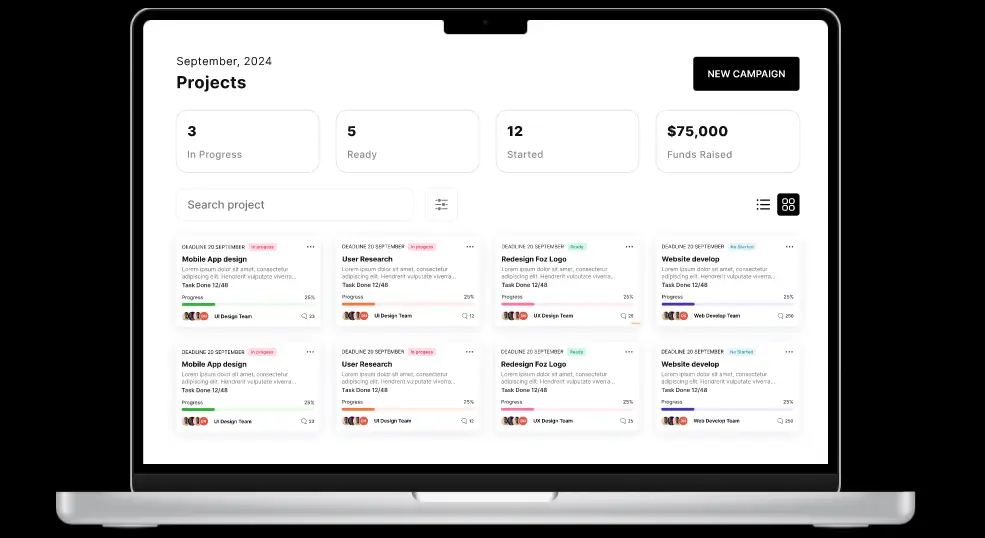
Meet the Users
Issa
Issa is a software tester at the pension management organization in nigeria.
He is willing to give back to the community by anonymously backing projects he cares about.
Ahmed
Ahmed has a remote data analysis agency, has an MBA in business studies from the university of Mumbai.
He is more familiar with crowdfunding platforms as he has traded cryptocurrencies in the past.

Nico
Nico is a frelance software developer that wants to funds projects that he's building.
He is frustrated by traditional crowdfunding platforms and wants a more secure and permissionless platform to get funds for his projects.
Competitive Analysis
Many existing crowdfunding platforms feature complex user interfaces, creating usability barriers, especially for users who are less tech-savvy. Simplifying navigation and making the platform more intuitive could make it more accessible and appealing.
Users also prioritize transparency and security, especially regarding fund allocation. Integrating transparent, real-time tracking of funds via blockchain technology could meet this demand and help build trust.
Preparing the Journey
In the campaign creation journey on DecentCrowd, users move from initial idea conception to campaign setup, utilizing features like project customization and transparency tools. This journey includes access to secure DAO integration, allowing campaigners to involve backers in decisions. The design is focused on simplicity and clarity, ensuring campaigners can easily build and manage their projects.
For project backers, the journey emphasizes campaign discovery, assessment of transparency metrics, and secure funding. Backers are guided through exploring campaigns, viewing detailed project data, and contributing funds confidently. Additionally, they gain access to the decentralized governance system, offering a unique, participatory role in project decisions.
Iteration
This project started with high-fidelity wireframes to establish a clear, functional design from the outset. We then moved to interactive prototyping to simulate user flows for campaign creators and backers, allowing us to gather feedback and refine the design in each iteration for an optimized, user-centered final product.
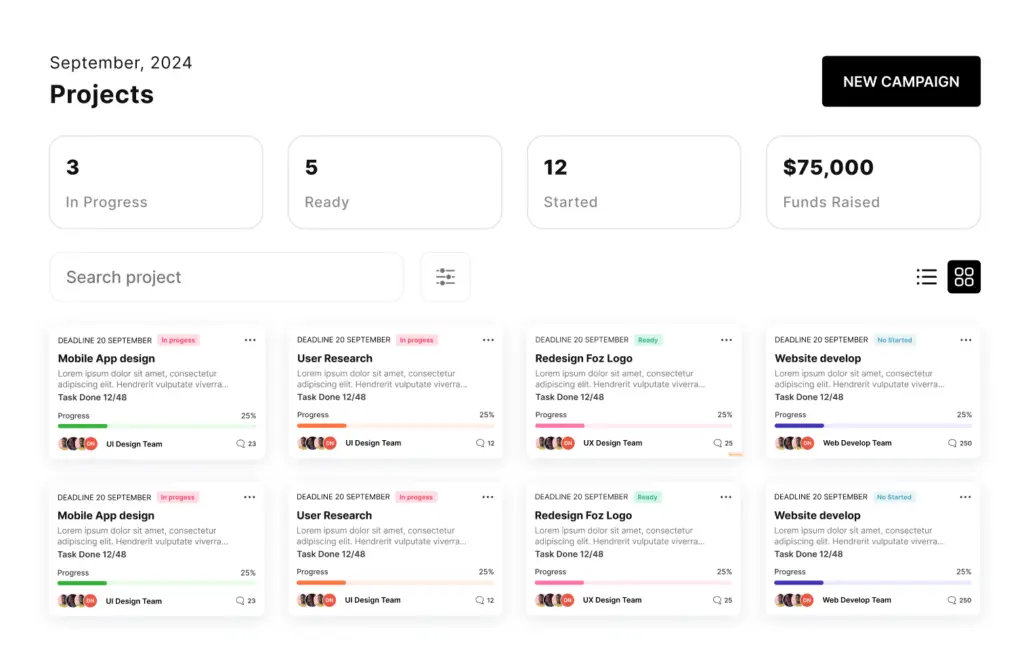
Grid-filtered Dashboard
This is the homepage of the creator dashboard with grid filter enabled.
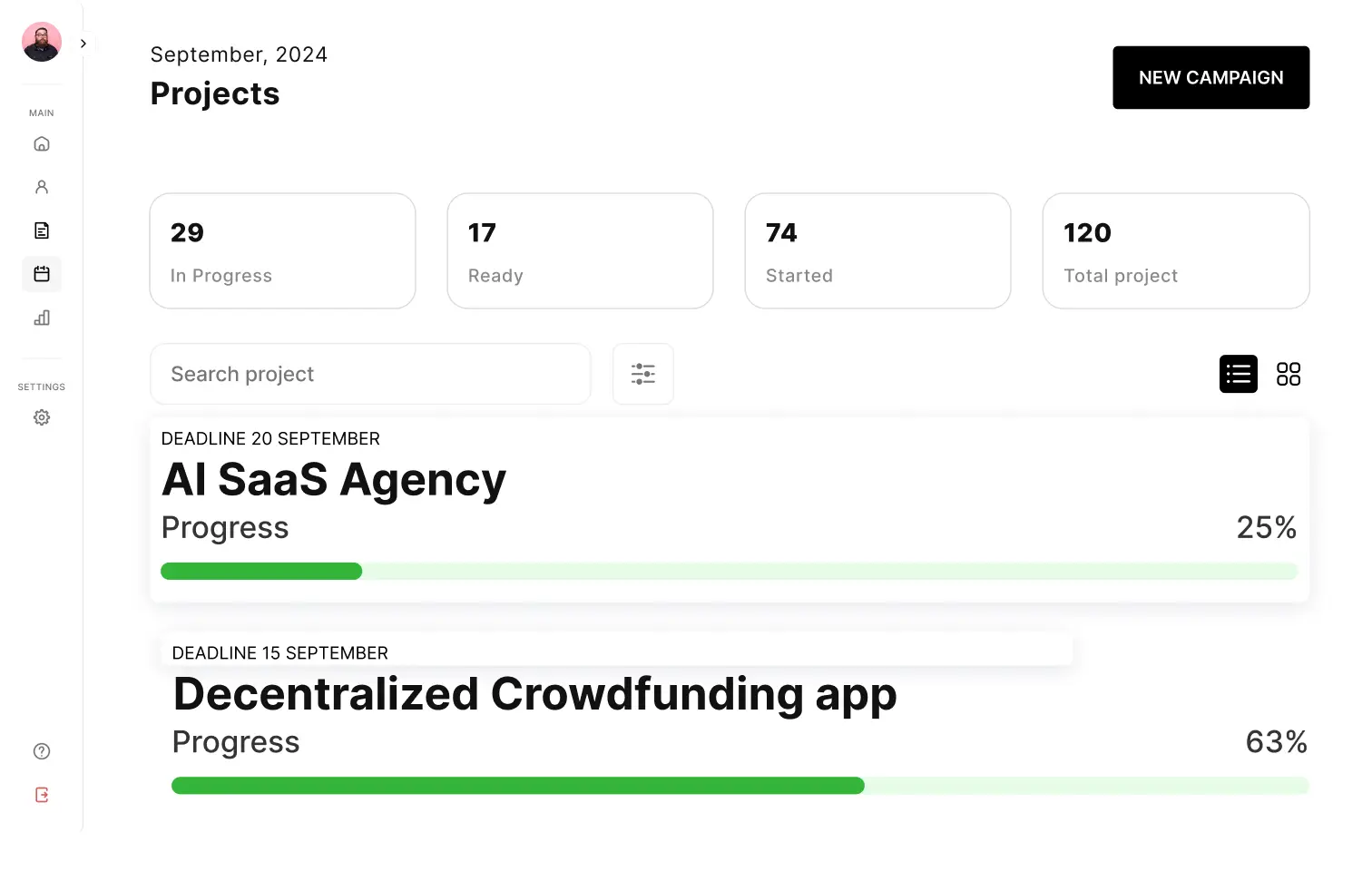
List-Filtered Dashboard
This is the homepage of the creator dahboard with a new sidebar and the list filter enabled.
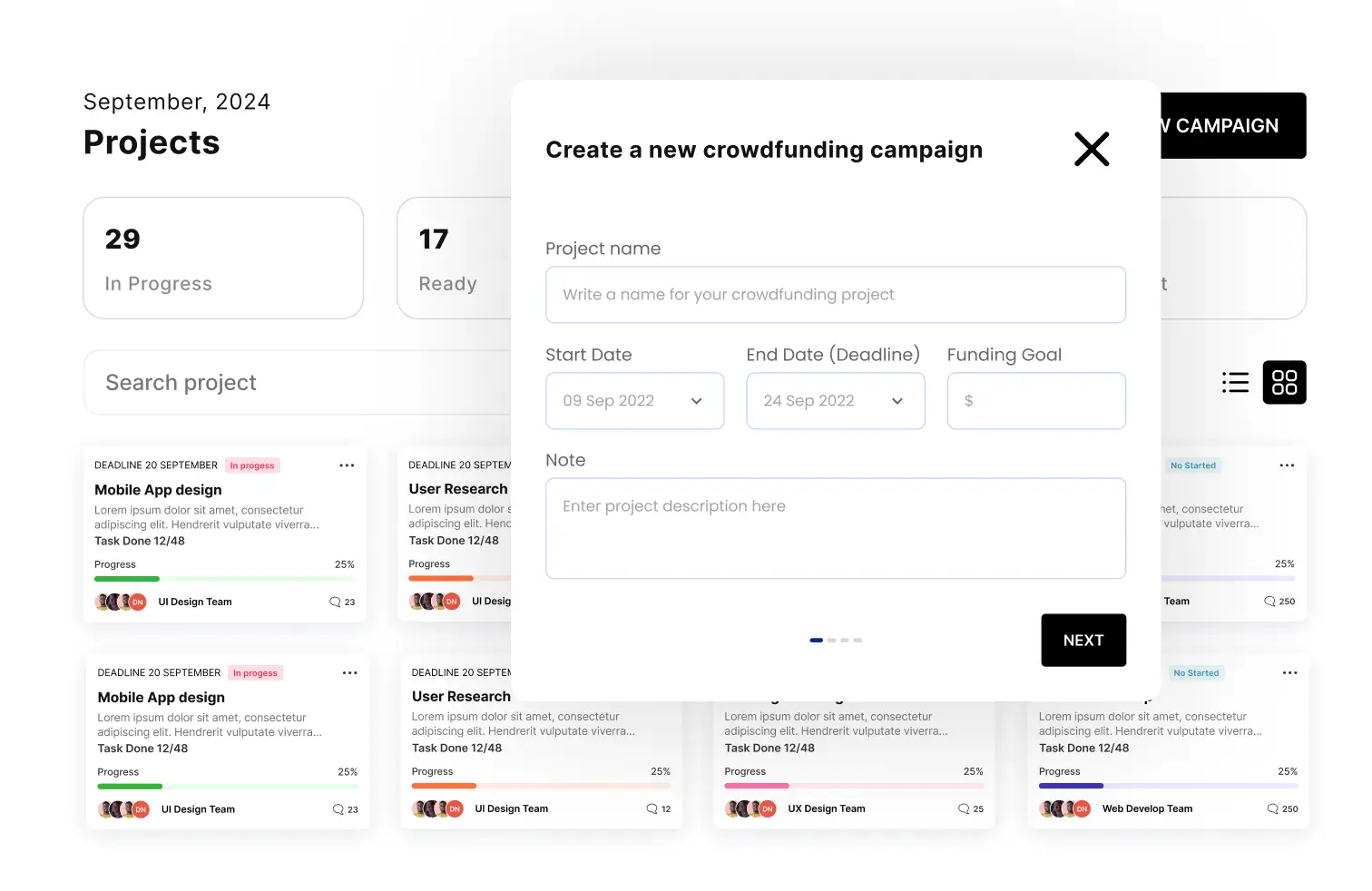
Campaign Launching
This is the popup form that needs to be filled in order to create a crowdfunding campaign.
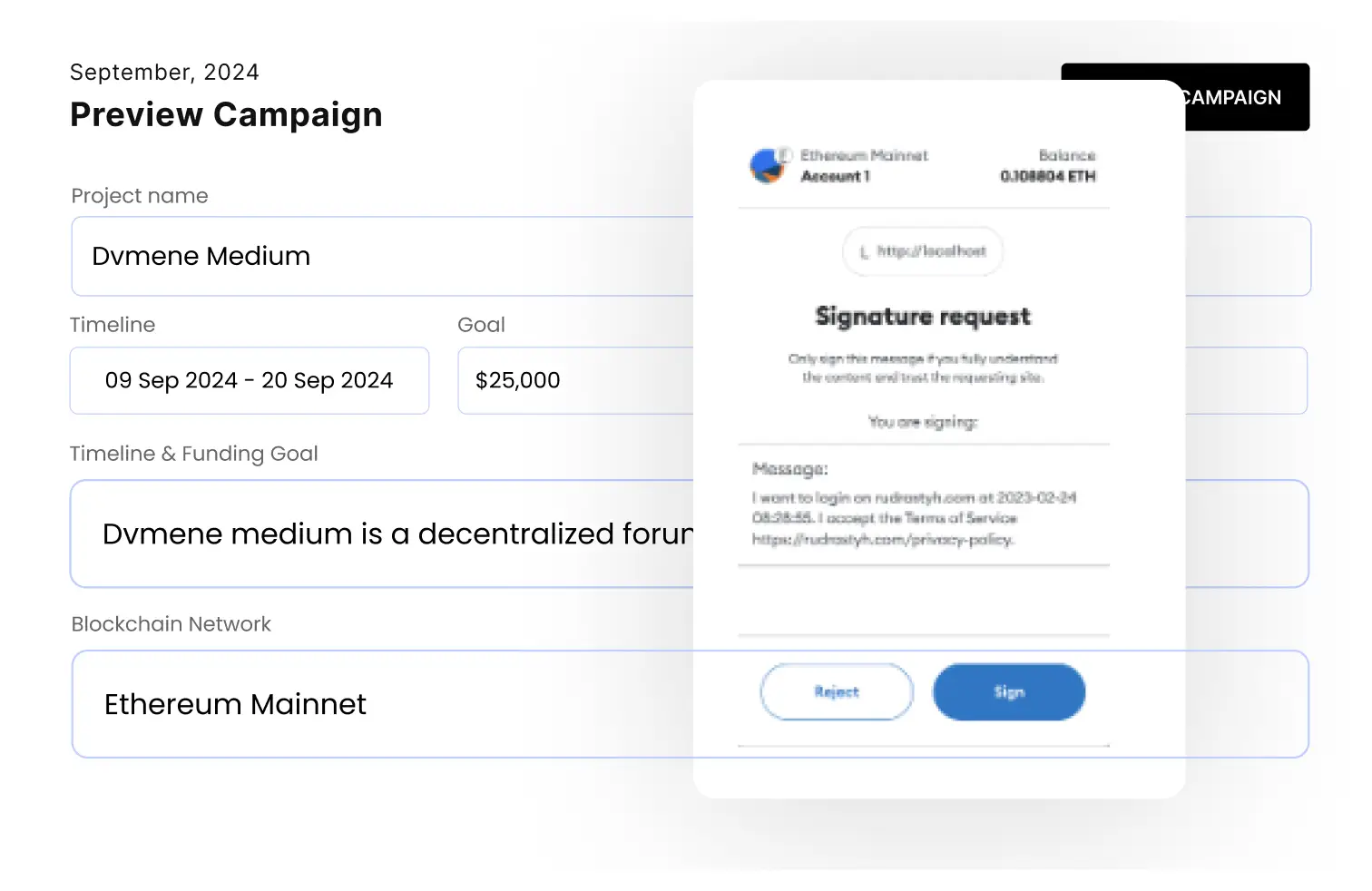
Metamask Sign
A smart caontract is signed to launch a crowdfunding campaign.
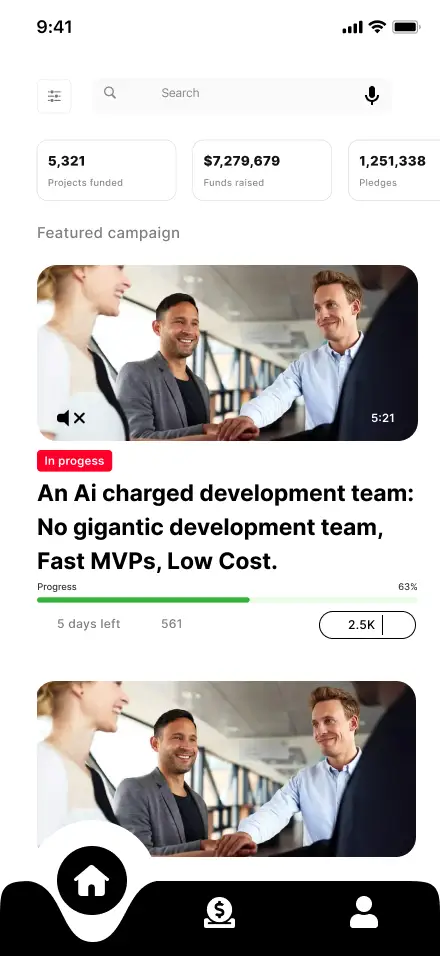
Mobile App
This is the homepage is for project backers to funds projects they find interesting.
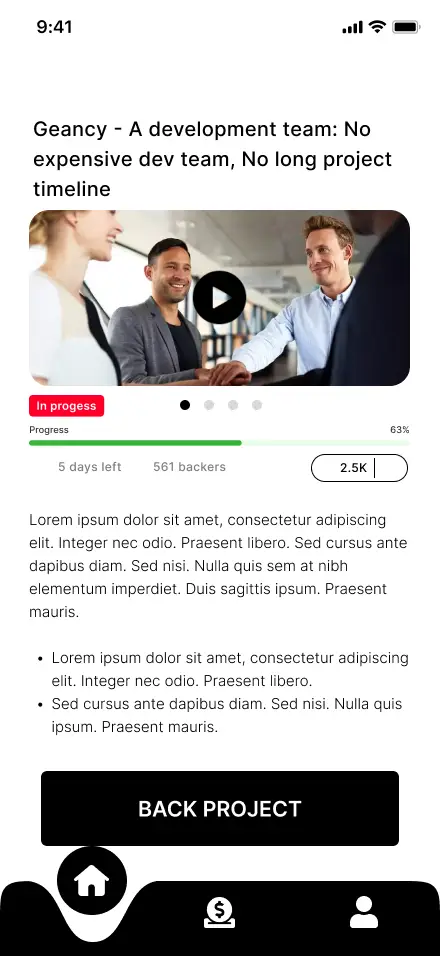
Campaign Page
Where project backers can find out more details about a crowdfunding campaign.
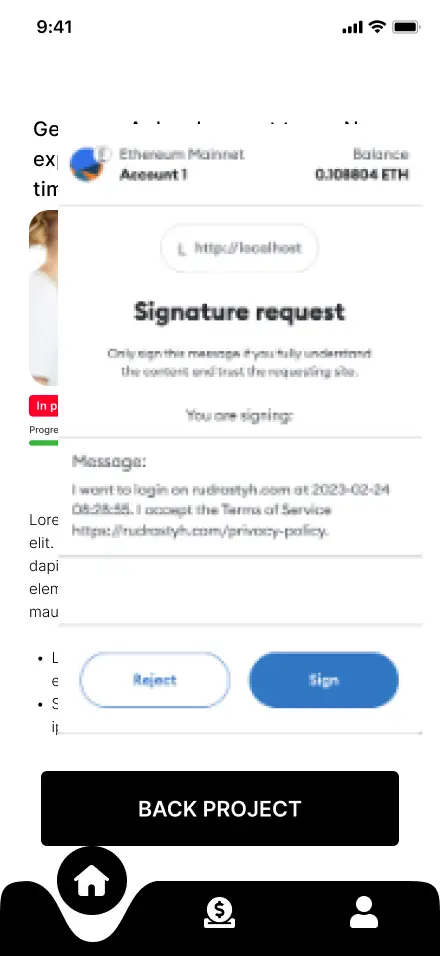
Metamask Sign
A campaign can only be funded using cryptocurrencies.
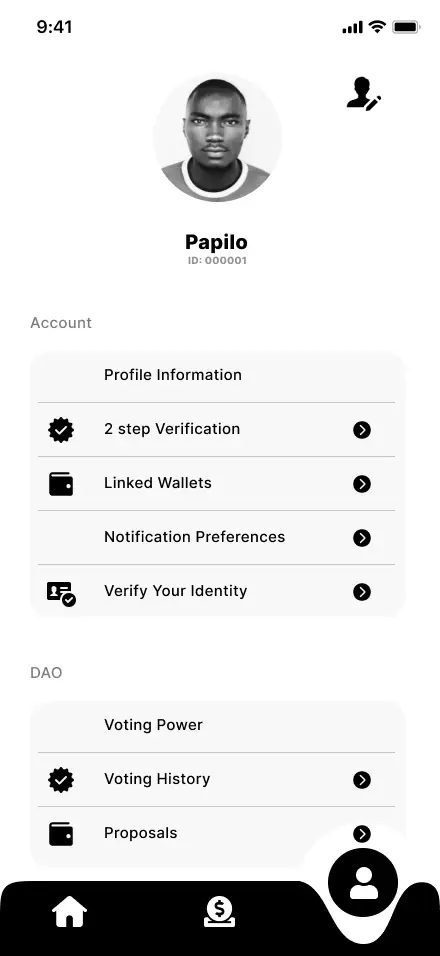
Profile Page
This is where users can edit their profile.
Limitations
- Limited resources restricted multiple rounds of user testing.
- Starting with high-fidelity design reduced my flexibility to integrate feedbacks in the early stages.
- Resource constraints limited access to diverse user demographics.
What I learned
- Balancing design quality with user-centered feedback is crucial, especially in projects managed by a generalist ux deisgner.
- Iterating directly on high-fidelity prototypes helped me to develop agility and adaptability in design.
- It is important to adapt quickly to user needs during agile iteration.

